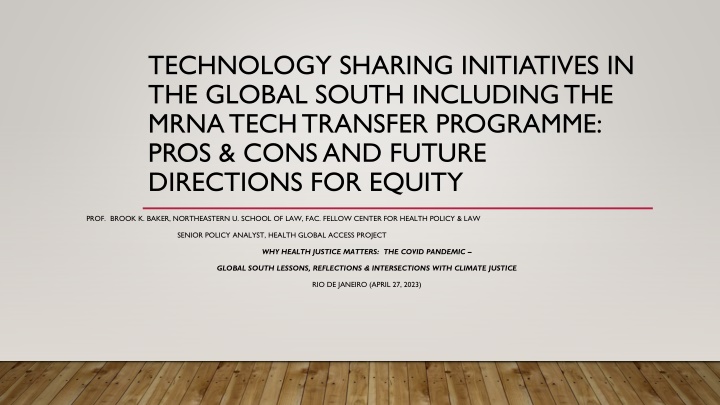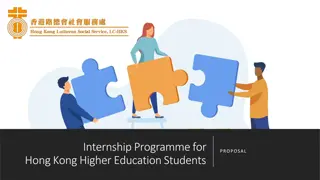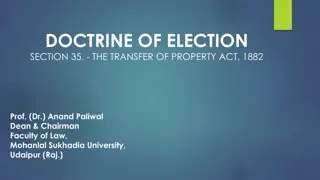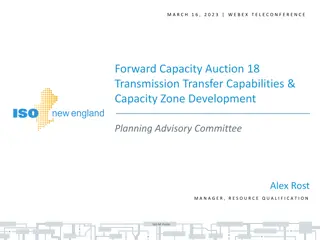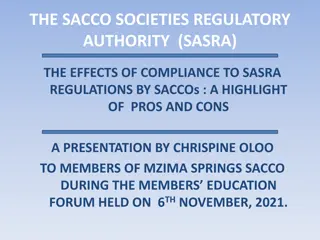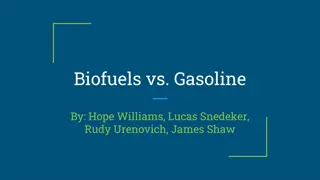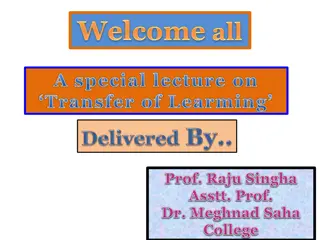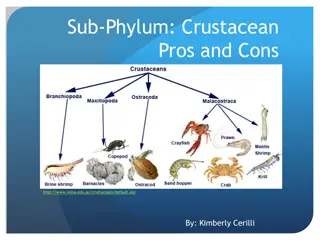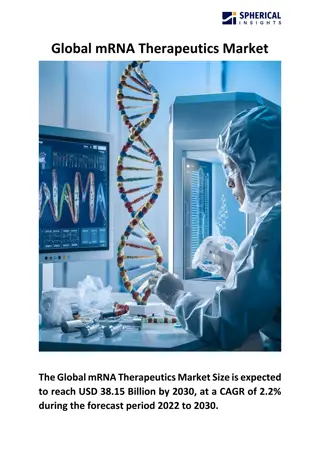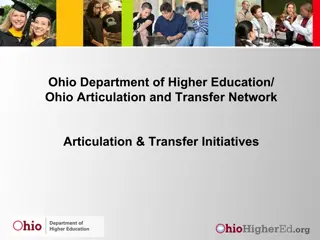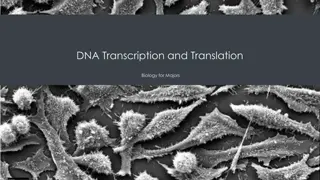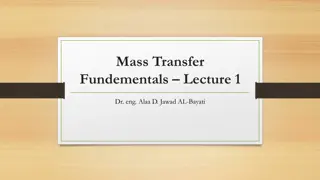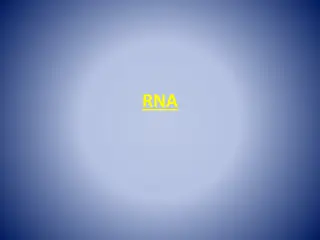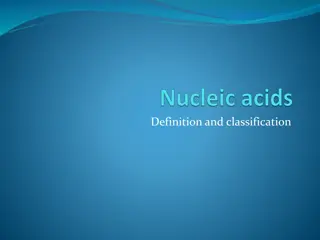Analysis of mRNA Technology Transfer Programme in the Global South: Pros, Cons, and Future Directions
The mRNA technology transfer programme in the Global South aims to enhance health security by establishing mRNA manufacturing capabilities in low- and middle-income countries. The programme, led by Afrigen in South Africa, focuses on empowering LMICs to produce mRNA vaccines initially for COVID-19, with plans to expand to other important diseases. However, IP barriers may hinder the programme's success, including limited freedom to operate, patent issues, trade secrets, and production complexities. Future directions should address these challenges to ensure equitable access to innovative health solutions.
Download Presentation

Please find below an Image/Link to download the presentation.
The content on the website is provided AS IS for your information and personal use only. It may not be sold, licensed, or shared on other websites without obtaining consent from the author.If you encounter any issues during the download, it is possible that the publisher has removed the file from their server.
You are allowed to download the files provided on this website for personal or commercial use, subject to the condition that they are used lawfully. All files are the property of their respective owners.
The content on the website is provided AS IS for your information and personal use only. It may not be sold, licensed, or shared on other websites without obtaining consent from the author.
E N D
Presentation Transcript
TECHNOLOGY SHARING INITIATIVES IN THE GLOBAL SOUTH INCLUDING THE MRNA TECH TRANSFER PROGRAMME: PROS & CONS AND FUTURE DIRECTIONS FOR EQUITY PROF. BROOK K. BAKER, NORTHEASTERN U. SCHOOL OF LAW, FAC. FELLOW CENTER FOR HEALTH POLICY & LAW SENIOR POLICY ANALYST, HEALTH GLOBAL ACCESS PROJECT WHY HEALTH JUSTICE MATTERS: THE COVID PANDEMIC GLOBAL SOUTH LESSONS, REFLECTIONS & INTERSECTIONS WITH CLIMATE JUSTICE RIO DE JANEIRO (APRIL 27, 2023)
MRNA TECHNOLOGY TRANSFER PROGRAMME The mRNA technology transfer programme is a global initiative that aims to improve health and health security by establishing sustainable, locally owned mRNA manufacturing capabilities in and for low- and middle-income countries (LMICs).The programme is based around a technology transfer hub, Afrigen, which is located in South Africa. They will provide the technology development, training and technology transfer, and currently 15 programme partners in LMICs across the world are receiving training and technology from the hub and will then produce and sell products commercially. Its core concept is empowerment [in innovation and access]. Initially the programme is focusing on mRNA vaccines against COVID-19. However, the programme is designed to encourage the development of other mRNA vaccines and therapeutics against important diseases that threaten LMICs, thereby ensuring the capacity built by the project is sustained and available to combat the next pandemic.
MRNA TECH TRANSFER PROGRAMME PARTNERS mRNA technology recipient Country Argentina Brazil Sinergium Biotech Bio-Manguinhos Indonesia Biofarma Egypt BioGeneric Pharma S.A.E India BiologicalE (Bio E) Kenya tbd* Pakistan National Institute of Health Nigeria Biovaccines Nigeria Limited Serbia Institut Torlak Senegal Institut Pasteur de Dakar South Africa Biovac Tunisia Institut Pasteur de Tunis Ukraine Darnitsa Viet Nam Polyvac Bangladesh InceptaVaccine Ltd
MRNATECH TRANSFER PROGRAMME AMBITION: A NEW ECOSYSTEM FOR INNOVATION & ACCESS
IP BARRIERS STAND IN THE WAY OF THE PROGRAMMES SUCCESS Limited freedom to operate for future research and commercialization Patent barriers stand in way of viable export/import markets Patent barriers to basic mRNA technology, esp. on South Africa Must keep track of patent landscape. Present & future barriers to research & novel disease applications Trade secret & confidential information & know-how mRNA Vaccines & Therapies are more complex to produce (biologics even harder) Are there research and early working exceptions for R&D and registration? Are patents available for new uses? Illusory COVID-only, Non- Enforcement Pledge Is Moderna s pledge revocable?
TO CREATE VIABLE, SUSTAINABLE MARKETS, COMPULSORY LICENSES WILL BE NEEDED IN COUNTRIES OF PRODUCTION/EXPORT AND IMPORT/USE Regional? Sub-regional? Domestic only? Economies- of-Scale?
THE PROGRAMME PARTNERS CANNOT CREATE FREEDOM TO OPERATE AND AGGREGATED EXPORT/IMPORT MARKETS ON THEIR OWN COUNTRIES MUST TAKE OWNERSHIP AND ACT Nat l law reform for easy-to-use, presumptive/mandatory compulsory licenses Will countries be willing to pay more for regionally produced mRNA vaccines/therapies? Coordinated, durable procurement, advance purchase, and stockpile agreements Coordinated use of CLs to create freedom to operate Regulatory reform to expedite domestic marketing approval Coordinated use of CLs to create viable, sustainable export/import markets
IS THE SPOKE & HUB MODEL ADAPTABLE TO OTHER VACCINES, MEDICINES, AND DIAGNOSTICS? African spoke Tech hub Eastern Europe/ Central Asia Asian spoke Latin America spoke
IS THIS BUSINESS AS USUAL BY REGIONAL POWERS OR A NEW PROJECT FOR SOUTH-SOUTH COOPERATION IN BIOPHARMACEUTICAL INNOVATION AND EQUITABLE ACCESS? Is the Is the Programme a new platform for open science and assured Global South equitable access? Programme a distributed commercial/ industrial development policy? Private-control/Market-driven approach? Right to health/public health impact approach? Is the Programme mainly designed for domestic security of supply?
